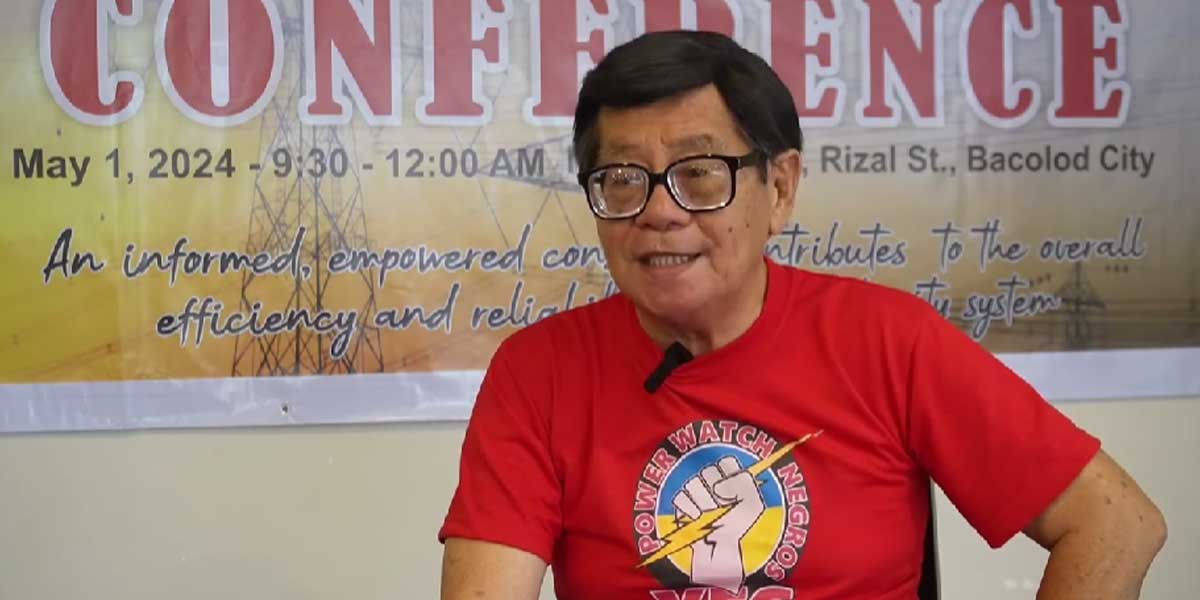
By Dolly Yasa
BACOLOD CITY—Power Watch Negros Secretary-General Wennie Sancho attributed the recent electricity rate increase to the high generation cost due to price hikes in the Wholesale Electricity Spot Market (WESM) in April 2024, brought about by “power supply concerns,” a euphemism for yellow or red alert.
A red alert is raised when there is insufficient power supply in the grid, necessitating power interruptions, he pointed out.
Sancho expressed his disgust at the generation charges to be shouldered by consumers who are already struggling with inflation and high living costs.
One of the factors leading the National Grid Corporation of the Philippines (NGCP) to declare a yellow or red alert was the unreliability of several generation plants, which resulted in both planned and unplanned outages.
“The consumers have nothing to do with the power outages,” he pointed out. “Why penalize them by making them pay for the failure of the power generators? The causer of the cost should pay the cost, not the consumers.”
Sancho added that the situation is an added injustice to consumers who are suffering from blackouts, insufficient ancillary services, ineffective system operations, undercapacity, and power plant shutdowns.
Sancho urged the Energy Regulatory Commission (ERC) and the Department of Energy (DOE) to assess the feasibility of retiring unreliable and obsolete power generation plants that have been experiencing recurring outages annually.
“It would seem to appear that the planned and unplanned outages of most power generation plants are happening in concert,” he also said. “We hope these were not deliberate actions.”
Sancho pointed out that without an accountability mechanism in place, generation companies lack the incentive to improve their services by maintaining their power plants in good condition, training and hiring experts to respond quickly to unplanned outages, and purchasing necessary spare parts and equipment.
The frustration of consumers is exacerbated when power generators announce high profit margins, courtesy of WESM, the most expensive electricity trading center in the Philippines, Sancho said.
“The discrepancy between the opulent lives of power plant owners and the economic starvation experienced by consumers calls for a closer examination of the affordability of electric power for the poor,” he added. “This generation rate increase will further deteriorate consumers’ purchasing power and reduce minimum wages to starvation levels. Isn’t it an injustice when the poor become poorer and the rich become richer?”
Sancho called for government regulatory agencies like ERC, DOE, and NGCP to ensure a balance between company profitability and consumer welfare. He emphasized that power generating companies should bear greater accountability and responsibility in justifying their profits and commitment to advancing consumer welfare.
Erring power producers should be penalized with appropriate fines, including the possible revocation of their compliance certificates for gross incompetence in failing to provide crucial services during a power crisis.
Power Watch Negros is calling for collaborative efforts to promote fairness, accountability, and transparency in the energy sector.





















